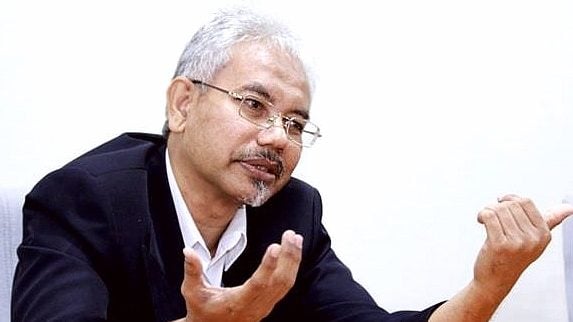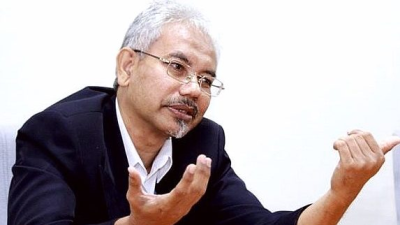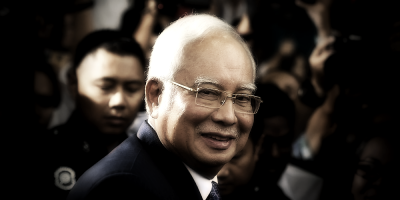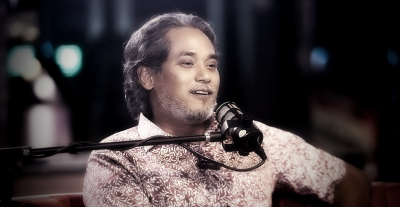
The dress codes to public buildings seem to be another hot issue.
Only in Malaysia would an issue that the prime minister should be a Malay and that dress codes at public buildings can be of equal status in the political considerations of the country.
But then, that is the unique character of our country, is it not?
Are we to say that we must be “open” or “liberal” like, say, Western countries?
The sight of a daily newspaper in UK containing a naked woman on the front page for all to see should be the standard of a “developed country”?
Let us take the dress code issue. What is the issue? Non-Malays are incensed that they are required to observe certain minimum “dignity” of dressing according to the rules set by the Malays.
Now, is this constitutional? Well…I do not think that the constitution bothers about trivial matters on whether the PM should be a Malay or whether a concert should be held or even what to wear when going to the education department.
So, where is the constitutionality issue here? Tak ada! So, it comes down to a cultural issue.
Here we quote the Rukunegara of Kesopanan dan Kesusilaan.
Of late, many Malaysians, I notice, do not care two cents when they criticise the PM or any minister, especially in a certain news portal which allow netizens to just vent anything, anyway, anyhow.
Yes, the news portal made a clause of not using vulgar language and so forth, but I read these comments and to me, there is no kesopanan and kesusilaan anywhere being practised.
So, Malaysians, where are we in this dress code business?
Firstly, it is absolutely clear that if someone was in an emergency situation of an accident and having to go to the police station or to the hospital, it would be absolutely bodoh and bangang for any security guard or the management to deny service to anyone.
That is a line that all of us must draw. Malaysians get my full support. And if anyone other than the victims have to come to the aid at that accidental time, then the rule of dress codes must never apply. I hope the police force and the hospitals are clear about this.
However, when we have to visit public buildings for other purposes that is not in an emergency situation, we must ask ourselves how should we present ourselves there?
Now the Malays will have a serious disagreement with others.
Others might feel that going to the beach and going to a Malay house or visiting a public building is one and the same. We of course would agree that visiting a holy place like a mosque or a temple or a church, we must think about how God will see us.
Now, Malaysians might say that visiting Prof Tajuddin at his house, even though I never specify it, would require some thought on dress codes because his wife is a conservative Muslim, while Prof Tajuddin is as “liberal” as a Westerner.
But I have had many guests at my house and they all seem to observe a decent dress code with the women and the men without my asking so.
Now, that is the mark of our society. The idea that we must respect each other’s culture and norms.
But Malaysians seem to argue that there is no need for any dress code going to Prof Tajuddin’s house or going to a public building for a service. Why? Well, the public do not pay him a salary (although in truth, I have my pension from the public) and that civil servants are “servants” to the “lords of the nation” who are the citizenry paying taxes and paying the servants.
We cannot change the clock back to Tunku’s time and it would be more matured of us to accommodate change.
Now, logic like this is completely rational and acceptable. So, you can literally walk into the Department of Motor Vehicles wearing hot pants and tight tops just like when you visit Mid Valley Megamall, right?
Well, if it were me who was the Ketua Pengarah, I would say …okay-lah! Whatever works man! But, I am not the Ketua Pengarah!
The Ketua Pengarah comes from a product of Islamic development that has taken 40 years in the making. What, you did not notice? The Malays had been changing for 40 years and you still did not notice?
The rise of madrasahs and the religious schools as well as the rise of political parties shouting Islam and the Islamisation of Tun M and Umno were happening…and you did not notice?
Again, the argument from Malaysians is that we pay taxes and the salaries of the servants, so it should be okay for us to wear whatever.
Again, I agree with you…but there is only one of me and millions of those other Malays!
Now let us depart from the democratic freedom of wearing whatever you want to the question “do cultural values stay the same or do they change?”
Now, I am sure all of us would agree that cultural values change throughout the time. Culture is not static. Thus, even Chinese at one time would not tolerate their daughters in hot pants. Similarly, the visions of actress Sarimah in a sexy kain ketat in my favourite movie “Tiga Abdul” will never be seen by any Muslim ladies at any formal function.
The idea of Malays drinking alcohol in public was once commonplace. The Parliament building was designed with an alcohol bar at the top for Tunku and the MPs.
Now, would any MP, Melayu or non-Melayu, dare to hold a glass of champagne in any formal event involving Malay guests?
It was alright 50 years ago in the P. Ramlee age, but now in an ABIM-IKRAM-PAS age, you would be mad to do that.
But of course, if all Malays understood religion like Prof Tajuddin, it would not matter. Unfortunately, that is not the reality. Is that?
My advice to my Malaysian brethren is that we should follow the changing values of our society and just conform to the dress code. But if you come to my house, you can wear whatever you like as my spirituality does not judge anyone by their dressing but only by the manner of them speaking and treating others.
We cannot change the clock back to Tunku’s time and it would be more matured of us to accommodate change as that what makes living together in a family, a community and a nation entails.
Finally, I hear of a cultural clash between a university receiving thousands of students from China and their dress style and behaviours are causing the surrounding Malay community a great concern.
Now, who do you think we should change, the China students or the community at large?
This is what nation-building is all about and this is what global coexistence will require us to do.
The university says change the students, but I say change the community. Again, there is only one of me!
(Prof Dr. Mohd Tajuddin Mohd Rasdi is Professor of Architecture at a local university and his writing reflects his own personal opinion entirely.)
ADVERTISEMENT
ADVERTISEMENT





































